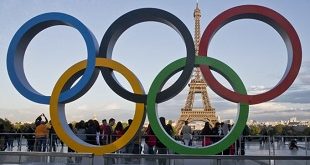Montreal, Canada | AFP |
Kenya’s participation at the Olympic games was thrown into question on Thursday after the World Anti-Doping Agency declared the country’s drug-testing regime to be in breach of strict international standards.
In a ruling announced during a WADA meeting in Montreal, officials said recent efforts by Kenya to improve its anti-doping capability were inadequate.
René Bouchard, Chairman of WADA’s compliance review committee (CRC), said Kenya’s drug testing agency was declared “non-compliant with immediate effect.”
“The CRC cannot ignore the legislation is not in line with the code,” Bouchard said, citing “inconsistencies” in Kenyan rules.
Kenyans have missed two WADA deadlines to show they are tackling doping, with world athletics chief Sebastian Coe warning earlier this year the country’s athletes could be barred from August’s Olympics in Rio de Janeiro if they were deemed non-compliant.
READ: President @UKenyatta‘s speech during the signing of the Anti-Doping Bill into law https://t.co/TBS3371THR pic.twitter.com/aEgqV57r0y
— Nation FM (@NationFMKe) April 22, 2016
Kenyan president Uhuru Kenyatta signed a new anti-doping law on April 22, which it had been hoped would allow the African athletics powerhouse to be given the green light by WADA.
However, the move was deemed insufficient by WADA, with the compliance committee finding that Kenya was in breach of its code.
The WADA ruling comes after Russia was declared non-compliant by the global doping watchdog last year.
It followed a bombshell WADA independent committee investigation which detailed a state-sponsored doping regime in Russia.
The participation of Russian athletes in Rio is hanging by a thread. Unless an international suspension of the country’s athletes is lifted, they will be barred from competing in Brazil.
The likelihood of action being taken against Kenya had risen steadily over the past year, with the country being placed in “critical care” over failings in its anti-doping programme.
The #WADA CRC has made the unanimous recommendation that #Kenya be declared non-compliant with immediate effect.
— WADA (@wada_ama) May 12, 2016
Kenya hits back
Thursday’s WADA declaration was greeted with dismay by Sharad Rao, the Kenyan official appointed by the IAAF ethics commission to investigate doping in his country.
“In view of the circumstances, the decision is counter-productive and too drastic,” Rao. “If, one way or another, the law does not meet WADA expectations, it can be corrected.”
Kenyan athletes also hit back at the ruling, with world champion javelin thrower Julius Yego insisting the current anti-doping regime was yielding results.
“The news is not good for us athletes, who have been working extra hard at training to prepare for the Olympic Games,” Yego told AFP.
“It is not only about the risk of not going to Rio, but it is also that the good name of Kenya is at stake here. Those athletes who were found to have taken drugs have been disciplined.”
Kenya, a traditional stronghold of distance running, topped the medals table at the 2015 World Athletics Championships in Beijing.
However, the country has been the subject of intense scrutiny, with more than 40 Kenyan athletes suspended for doping in the past two years.
In December, three top Athletics Kenya officials — president Isaiah Kiplagat, deputy president David Okeyo and former treasurer Joseph Kinyua — were suspended by the IAAF ethics Commission for alleged corruption and covering up doping.
The IAAF confirmed last November that ex-Athletics Kenya vice-president Okeyo had been under investigation by Kenyan police over allegations of doping cover-ups.
A German broadcaster alleged that Kenya officials were extorting money from athletes and coaches to cover ups failed drug tests, in return for lenient doping bans.
Kenyan runner Francisca Koki, suspended for doping, told AFP in February that she and fellow runner Joyce Zakari were both asked to pay bribes totalling nearly $50,000 to help their respective cases.
Koki said the request came from Athletics Kenya chief executive Isaac Mwangi. Mwangi rejected the claims, with Athletics Kenya descbribing them as “spurious and farfetched.”
 The Independent Uganda: You get the Truth we Pay the Price
The Independent Uganda: You get the Truth we Pay the Price


